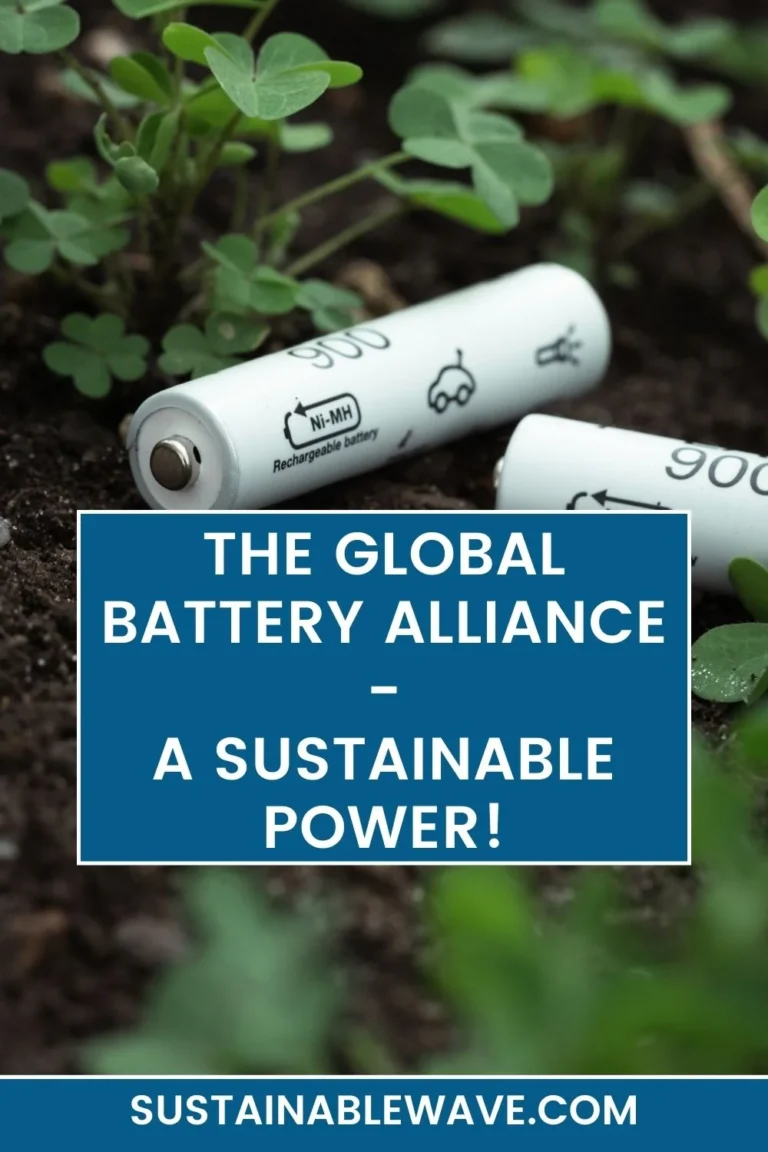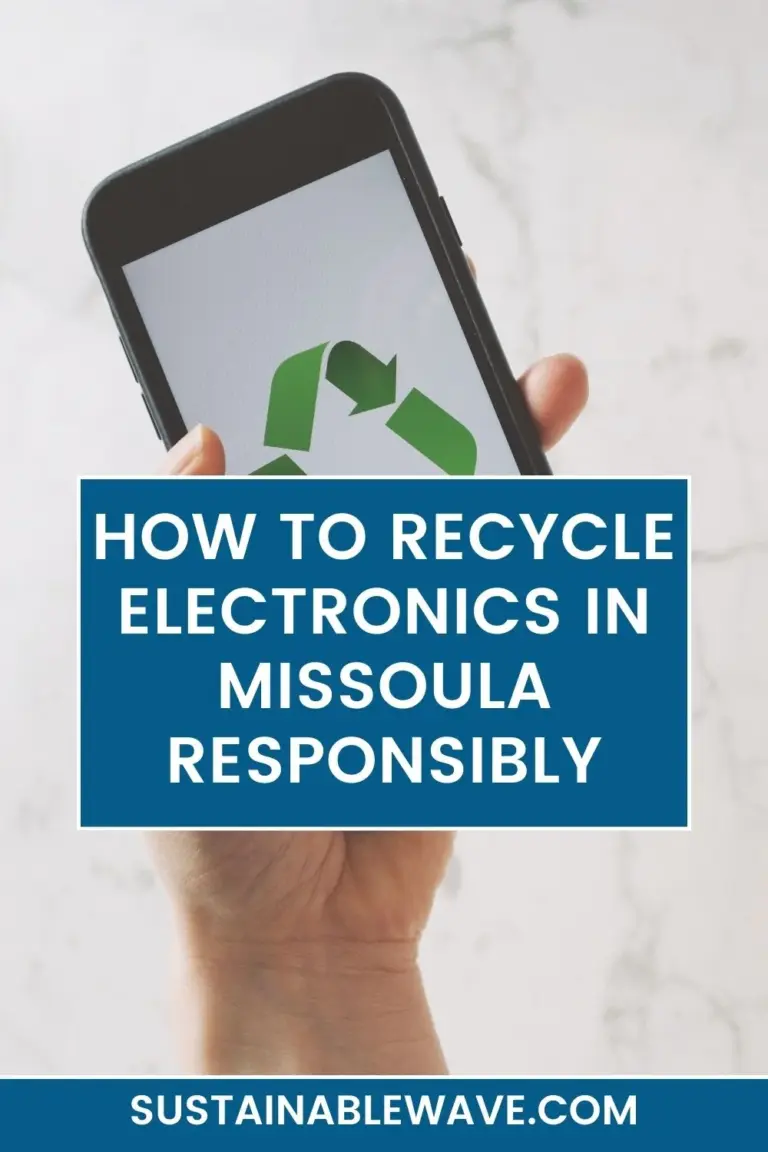Every homeowner knows the convenience of a garbage disposal. But when it’s time to replace or get rid of it, many are left scratching their heads. “How to Dispose of a Garbage Disposal” is not as straightforward as it seems.
To dispose of a garbage disposal properly, disconnect it safely, clean it thoroughly, and then opt for recycling, donation, or professional disposal services. Always prioritize eco-friendly methods over landfills to minimize environmental impact.
But there are a lot more options, and this comprehensive guide will light the way on how to properly dispose of a garbage disposal.
How to Dispose of a Garbage Disposal
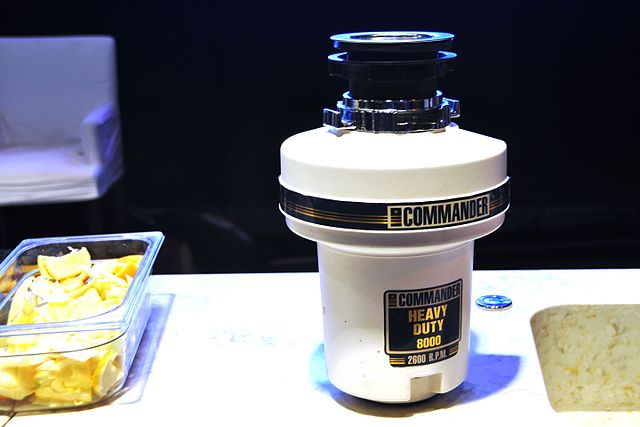
Replacing your garbage disposal? Excellent choice. But, what do you do with the old one? Disposing of this crucial kitchen device requires some finesse. There are environmental considerations, potential hazards, and of course, the sheer weight of the thing.
Before you can properly dispose of it, you need to understand what it’s made of. Garbage disposals are a blend of metal, plastic, and electrical components. Each of these needs a unique disposal method.
Safety First: Disconnecting the Unit
Safety should always be your top priority when dealing with appliances, and garbage disposals are no exception.
Before you even think about disposing of it, it’s vital to ensure that the unit is entirely disconnected from any power source.
The process for disconnecting can vary, but these steps will guide you:
- Turn Off the Power: Begin by turning off the switch that powers the garbage disposal. Often, this switch is located under the sink.
- Unplug from the Outlet: In addition to the switch, most garbage disposals are plugged into an electrical outlet under the sink. Carefully unplug the unit from this outlet.
- Cut Off Water Supply: It’s a good practice to also shut off the water valve under the sink. This step ensures no water flows while you’re working with the disposal.
- Check for Residual Power: After unplugging, it’s smart to press the disposal power button once more to ensure there’s no residual power. It ensures that all energy has been cut off.
Remember, while the risk might seem minimal, electrical appliances and water are not friends. You’re better off safe than sorry.
Cleaning and Preparing for Disposal
Your garbage disposal has done a tough job over the years, grinding up waste and keeping your pipes clear. Before its final curtain call, give it a proper clean:
- Use Ice and Salt: Begin the cleaning process by pouring a cup of ice cubes and a half cup of coarse salt into the disposal. Turn it on. This combo helps to scour the grinding chamber, removing the stubborn gunk and debris.
- Natural Cleaning with Vinegar and Baking Soda: Pour half a cup of baking soda followed by one cup of white vinegar. Let the mixture fizz and bubble for a few minutes. This natural solution helps break down food particles and combat odors.
- Flush with Boiling Water: After the vinegar and baking soda, pour boiling water down the drain. It will help wash away any remaining residues.
- Citrus Freshness: For a final touch, and to leave it smelling fresh, grind a few lemon or orange peels.
- Dry Properly: Let the unit air dry for a day to prevent mold or bacterial growth if there’s any delay in the disposal process.
Reuse and Repurpose Ideas
Before deciding to discard your garbage disposal, think outside the box! There are several ways you can repurpose parts or even the entire unit:
- Garden Tool Sharpener: The blades in the unit, if still sharp, can be used as a tool sharpener for garden tools like shears or hoes.
- Metal Scrap Projects: If you’re into DIY, the metal parts of the disposal can be a valuable resource for small projects.
- Children’s Science Projects: Older kids or schools might find the motor and electrical components useful for science projects.
- Art Installations: For the creatively inclined, dismantled parts can become elements of unique art pieces.
- Home Workshop: The motor can be repurposed in a home workshop for various tasks, with some modifications.
Local Recycling Centers
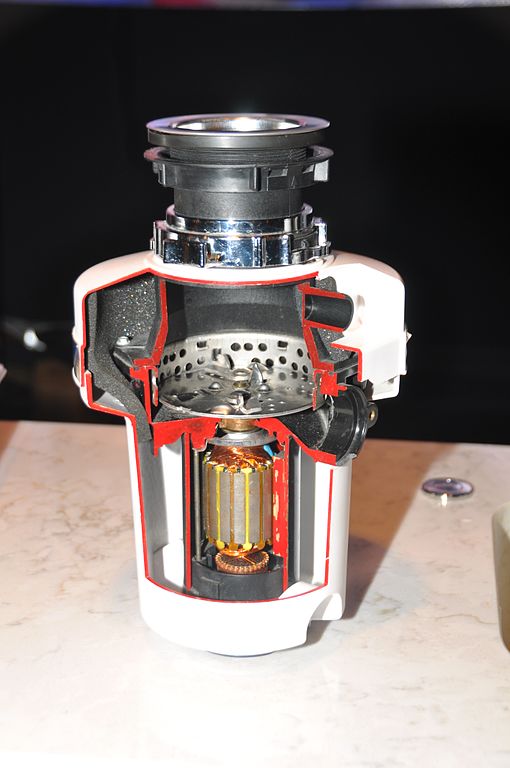
Local recycling centers are invaluable resources when it comes to disposing of household items, especially electronics:
- Metal Recycling: The majority of a garbage disposal unit is metal, which is recyclable. Instead of dumping it, ensure the metal finds its way back into the production cycle.
- Electrical Component Disposal: Recycling centers often have provisions for safely disposing of electronic components, ensuring they don’t harm the environment.
- Document and Label: When heading to a recycling center, ensure your garbage disposal is labeled and, if possible, provide any documentation. It makes the recycling process smoother.
- Ask About Pickup Services: Some recycling centers offer pickup services for larger items or bulk disposals. It can save you a trip.
Donation
Before sending off your garbage disposal to the landfill or recycling center, consider the possibility of donation:
- Local Schools: Vocational schools or those with robust technical programs might accept used appliances for students to work on.
- Habitat for Humanity ReStores: These nonprofit home improvement stores might accept working garbage disposals, which can then be resold to support the cause.
- Local Repair Shops: Some repair shops might take older models off your hands, either to refurbish and resell or use for parts.
- Online Marketplaces: Sites like Craigslist or Facebook Marketplace can be platforms to give away or sell used appliances.
- Ensure Functionality: If donating, make sure your garbage disposal is still in working condition or can be easily repaired.
Special Disposal Programs
Disposing of certain household items, especially appliances, often requires more than simply tossing them into the trash.
Special disposal programs, set up by local municipalities or private organizations, can help with this:
- E-Waste Collection Drives: Many cities periodically hold e-waste collection events. While garbage disposals aren’t electronic gadgets, they have components that qualify for these drives.
- Appliance Retirement Programs: Some utility companies offer programs where they’ll pick up old, inefficient appliances for recycling, sometimes even offering a rebate.
- Manufacturer Take-Back: Some manufacturers host take-back events or programs, where they collect old versions of their products for safe disposal or recycling.
- Community Clean-Up Days: Several towns organize annual or bi-annual clean-up days, during which residents can dispose of larger items, including appliances.
- Check Local Guidelines: Always check with your local waste management or recycling center. They can guide you on any specific disposal programs available.
Professional Disposal Services
Sometimes, the easiest and most responsible way to dispose of an appliance is by hiring professionals:
- Full-Service Convenience: Professional disposal services offer door-to-door pickup. They handle the entire disposal process, ensuring responsible discarding or recycling.
- Environmental Responsibility: Many professional services pride themselves on eco-friendly disposal practices, minimizing waste, and maximizing recycling.
- Safe Disposal: With their expertise, they ensure that all components, especially electronic or potentially hazardous ones, are safely disposed of.
- Cost-Effective: While there’s typically a fee involved, the convenience and assurance of responsible disposal often make it a worthwhile expense.
- Local Recommendations: Before hiring a service, check online reviews or ask friends and family for recommendations to ensure reliability.
Landfills
When all other avenues fail, landfills serve as the final resting place.
However, this method should always be a last resort due to its environmental implications:
- Environmental Impact: Landfills contribute to soil and water pollution. Components from the garbage disposal can leach into the ground, contaminating water sources.
- Limited Space: Landfills are also running out of space. Every item we can recycle or repurpose helps in preserving these spaces.
- Look for Eco-Friendly Landfills: If you must opt for a landfill, research eco-friendly options. Some landfills are designed to minimize their environmental impact.
- Tipping Fees: Most landfills charge a fee based on the weight of the items you’re disposing of. Ensure you’re aware of any costs involved.
Final Words on How to Dispose of a Garbage Disposal
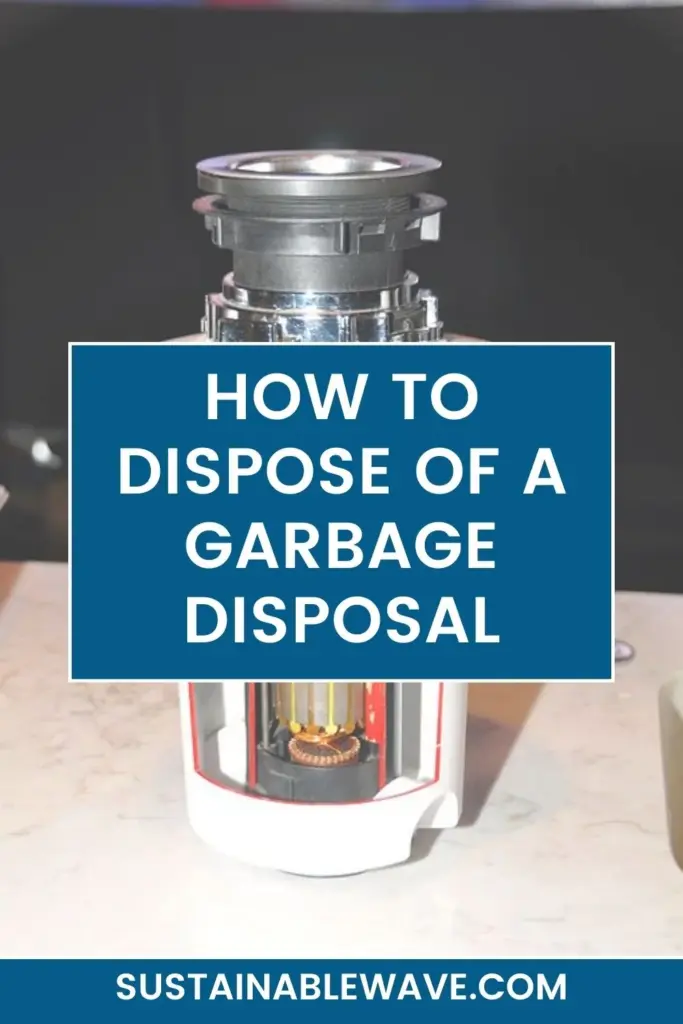
Disposing of a garbage disposal is more than just tossing it in the trash.
It’s about understanding the environmental and safety implications, knowing your options, and choosing the most suitable method.
Whether you opt for recycling, donation, or professional disposal, always prioritize eco-friendliness and safety. The future of our planet depends on responsible choices today.
I’m Thomas, the owner of SustainableWave. Passionately promoting a sustainable planet. With experience in various eco-roles, I’ll share green tips, sustainability hacks, and personal eco-journeys on my blog.


